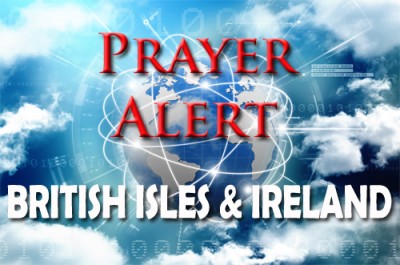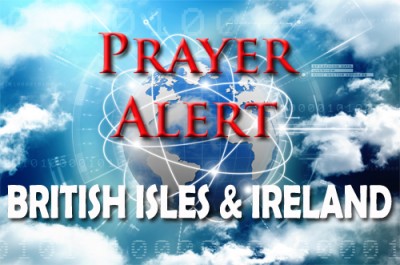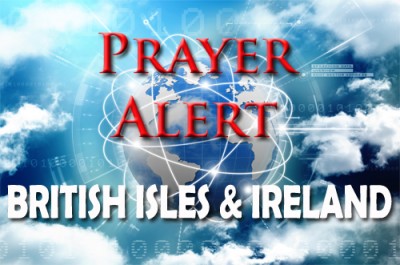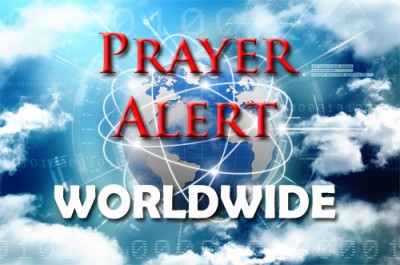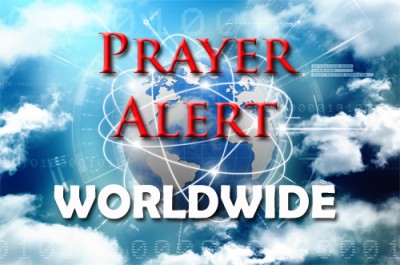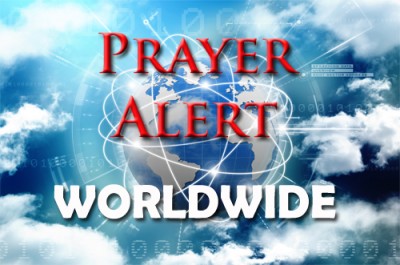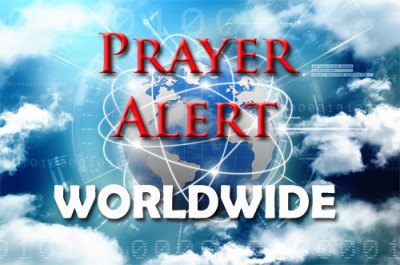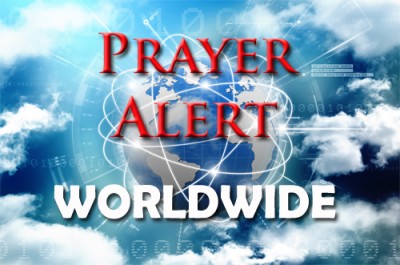London: Europe-focused conference
13 May 2016Believers from around the world gathered in London for the Empowered21 European Congress from 11 to 13 May. The event is intended to have an impact on Europe. Organisers said, ‘Europe is perhaps more in the world's view than it has been in decades, with the migrant crisis and terrorist attacks.’ Delegates prayed for God to do something fresh in Europe today - there are great signs of revival in Europe. They went on to say they intended to fan that flame of revival and encourage people to get involved and become agents of renewal in the UK. Their focus was addressing the rise of Islam, financial crises and terrorism with scholars focusing on the theology of grace and the Holy Spirit. Also on the agenda was ‘reaching this generation in the digital revolution’, and changing the way in which we engage with the most distracted and disrupted generation in history.
Invictus Games winner praises NHS
13 May 2016An American soldier has given her Invictus Games gold medal to the hospital team that saved her life at Papworth Hospital in Cambridgeshire. The swimmer, 25, from Arizona, became gravely ill when she collapsed with a lung condition on the eve of the first games in London in 2014. ‘They absolutely saved my life and I can't thank the UK enough for having that kind of medical support and taking such good care of me. So I gave Prince Harry one of my medals and hope it will find its way back to Papworth.’ She also paid tribute to the NHS, saying, ‘Thank you. I'll never be able to repay you, but what you're doing is wonderful.’
Discrepancies between stated number of migrants and national insurance records have fuelled accusations of a pro-EU cover-up. A claimed ‘missing million’ long-term EU immigrants to Britain have been proved to be a phantom army, according to a special analysis by the Office for National Statistics in the run-up to the EU referendum. The ONS says short-term migration – EU citizens coming to Britain for less than a year and sometimes for as little as a month – accounts for recent gaps between the official net migration figures for long-term immigrants to Britain and the number of national insurance numbers issued to EU nationals.
Israel: IS planning attack from Sinai
13 May 2016A German newspaper reports that IS is planning a massive attack against Israel from the Sinai peninsula. Such an attack could include tanks and artillery. The Sinai-based Ansar Bait Al-Maqdis terrorist organisation has pledged allegiance to IS in Syria and are training hundreds of terrorists, reportedly waiting for the order to attack. Israel has bolstered security on their Egypt border as a result of IS’ build-up. IS has already attacked civilian targets in southern Israel, and affiliated groups have solidified their presence, creating instability in the Israel-Sinai border region. Since 2011, there has been an unprecedented growth in terror groups operating from the Sinai, taking advantage of the chaotic situation in the area. Israel recently held a two-day large-scale naval drill which simulated a multiple-pronged IS attack on Eilat, including the hijack of a civilian vessel.
The church in the Middle East
13 May 2016Orthodox Christians celebrate Easter a month later than western Christians. One beautiful Orthodox tradition is the ceremony of lights in Jerusalem: Christians light their candles in the ancient city and take the fire back to their homes. Meanwhile, the Middle East conflict continues to impact Christians alongside their fellow-citizens. From Aleppo, the Aid to the Church in Need agency shared the heart-breaking words of Franciscan priest Father Ibrahim Alsabagh: ‘Never, since the beginning of this terrible war, were things as bad as they are now. I have no words to describe all the suffering I see on a daily basis. When the bombs do stop falling, there is an eerie silence, like in a cemetery. When will the world community finally wake up and put an end to this new Sarajevo?’ A London-based Syrian Orthodox priest, Revd Nadim Nassar, said he was ‘furious’ with the global Church for its failure to speak out against the atrocities in Syria.
Japan: G7 summit
13 May 2016Faith leaders and scientists have written to ask President Obama ‘to take nuclear risk-reduction steps’ during the G7 summit next week (26/27 May). ‘Heightened tensions between the United States and Russia, and the growing risk of nuclear use worldwide, are all the more reason for the president to take meaningful steps to strengthen national and international security’, the letter read. Reducing nuclear weapons has been a key goal of Obama's presidency, and is one of the reasons he was awarded the 2009 Nobel Peace Prize. He has rebuked Donald Trump for suggesting that Japan and South Korea should consider developing nuclear weapons. The president will visit Hiroshima, but there will be no apology for the bombing in 1945 that killed 140,000 people. The G7 agenda will cover uncertainty in global economy and trade; freedom, democracy, the rule of law and human rights; counter-terrorism; the Middle East, Ukraine, North Korea; and climate change and energy. See:
Iran: British-Iranian detained without charge
13 May 2016Nazanin Zaghari-Ratcliffe, a charity worker, was visiting her family in Iran. Her husband Richard has said: ‘She was at the airport returning to the UK on 3 April when the Iranian Revolutionary Guard arrested her, transferred her to an unknown location in Kerman Province and now holds her in solitary confinement. Gabriella, our 22-month-old daughter who has British citizenship only, has had her passport confiscated and is stranded in Iran with her grandparents. Nazanin has not been allowed access to a lawyer or her daughter; has not been able to call out of the country to speak to me; the Red Cross have not been able to make contact; she has been made to sign a confession under duress, its content unknown. Her family have been informed that the investigation relates to an issue of “national security”. There have been no charges.’ See:
Iraq: over 100 killed in bomb attacks
13 May 2016On Wednesday 93 people died in three car bomb attacks in Baghdad. The deadliest killed 64 and wounded 87. Later two suicide bombers targeted police checkpoints, leaving 29 dead. IS claimed responsibility for the attacks - the worst day of violence in Baghdad so far this year. ‘It was a thunderous explosion, jolting the ground,’ said a witness. Many victims were women inside a beauty salon, including several brides who appeared to be getting ready for their weddings. The bodies of two men believed to be grooms were found in an adjacent barber’s shop. There is an acute political crisis in Baghdad : the parliament is unable to meet, and the government is paralysed by factional disputes. Survivors blame politicians for failing to protect them. A Chaldean priest who oversees hundreds of Iraqi Christian refugees displaced by IS blames the USA for not protecting them and their ancient communities from attacks by terrorists. See:
